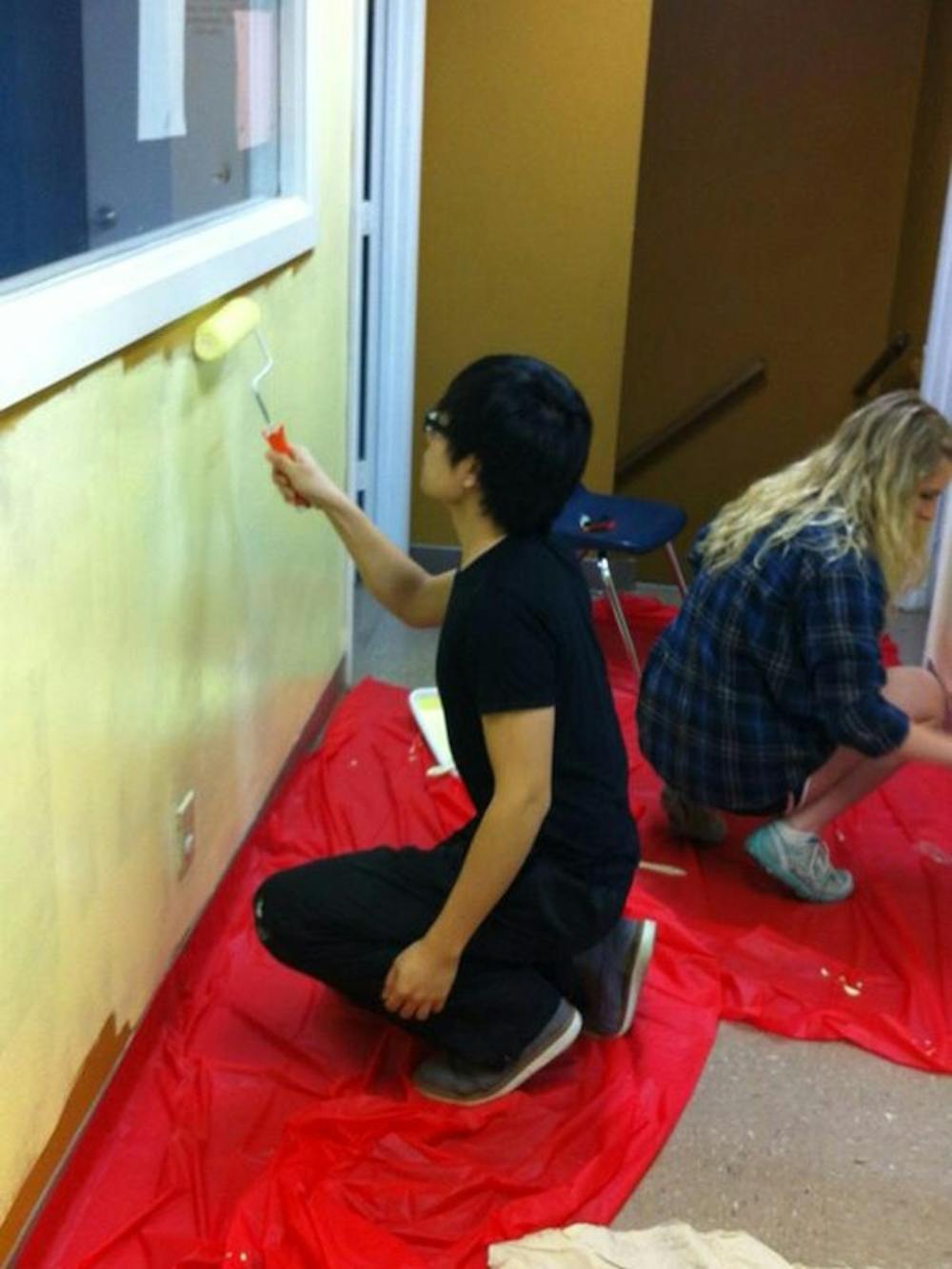In Nashville, garden planted, school renovated
Instead of relaxing on a sandy beach or catching up on sleep, some students chose to give back through community service over spring break.
Focusing on eliminating poverty, a group of students traveled to Nashville, Tenn., to learn how the Martha O’Bryan Center is taking action to empower those living in poverty and what they can do to help.
The center’s charter school offers underserved kindergartners and first-graders a quality education. Through their service, students set up three new classrooms that will serve the first-graders as they move to the second grade.
Elizabeth Brink, an AmeriCorps VISTA leader for USC, advised the trip to Nashville. She said she wanted to focus on engaging students in poverty-reducing activities.
“As an adviser, I was hoping to give my insight and experience to the students on the trip in order for them to understand more about the cycle of poverty and what they can do to fight the issue in not only Nashville but here in Columbia as well,” Brink said.
She encouraged new students who haven’t yet participated in an alternative break trip to look into it, and she said the an alternative break trip is a unique opportunity because it grants the student more knowledge, experience and humility.
Students also cleaned out classrooms to be used for new classes, worked at a tutoring and after-school program for children and adults and helped at the Martha O’Bryan Center’s main campus to clean the playground and plant vegetables in the garden for the center’s food bank.
Ashlyn Byrne, a third-year English student, helped plan the trip to Nashville.
“It was a lot different being on the leader side of the trip rather than on the participant side, but I had a great experience,” Byrne said. “Not only did we do some great work for the Martha O’Bryan Center, but we learned so much more than we expected.”
Byrne’s planning duties included finding reasonably priced housing, identifying activities for the week and coordinating nightly reflections.
She said meeting some of the people they served helped her and other students realize the impact that they were making.
“When we were working for seven hours a day, it was easy to get caught up in the indirect service and forget why we were there,” Byrne said. “But seeing the people that we were helping was very impactful.”
Both Brink and Byrne said student participation and experience were important for the overall trip as it allowed students to learn something new while doing something positive.
“Many people were taken outside of their comfort zones during the trip by doing something they had never done before, which challenged them and allowed them to grow as a person,” Byrne said.

